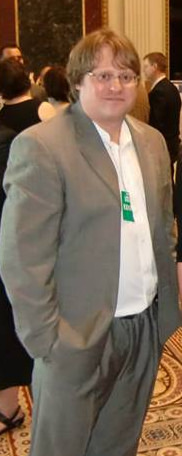It takes me a while to process things. It often then takes me longer to feel able to write about them. Two weeks ago we lost one of the true giants of Open Science. Others have written about Jean-Claude’s work and his contributions – and I don’t feel able to add much to those reflections at the moment. I will also be participating in a conference panel in August at which Jean-Claude was going to speak and which will now be dedicated to his memory – I may have something more coherent to say by then.
In the end I believe that Jean-Claude would want to be remembered by the work that he left online for anyone to see, work with, and contribute to. He was fearless and uncompromising in working, exploring, and thinking online, always seeking new ways to more effectively expose the process of the research he was doing. He could also be a pain to work with. There was never any question that if you chose to work with him then you worked to his standards – perhaps rather he would choose to work with you only if you worked to his standards. By maintaining the principle of immediate and complete release of the research process, he taught many of us that there was little to fear and much to gain from this radical openness. Today I often struggle to sympathise with other people’s fears of what might happen if they open up, precisely because Jean-Claude forced me to confront those fears early on and showed me how ill founded many of them are.
In his constant quest to get more of the research process online as fast as possible Jean-Claude would grab whatever tools were to hand. Wiki platforms, YouTube, Blogger, SecondLife, Preprint servers, GoogleDocs and innumerable other tools were grasped and forced into service, linked together to create a web, a network of information and resources. Sometimes these worked and sometimes they didn’t. Often Jean-Claude was ahead of his time, pushing tools in their infancy to the limits and seeing the potential that in many cases is only beginning to be delivered now.
Ironically by appropriating whatever technology was to hand he spread the trace of his work across a wide range of services, many of them proprietary, simply because they were the best tools available at the time. If the best way to remember his work is through preserving that web of resources then we now face a serious challenge. How far does that trace spread? Do we have the rights to copy and preserve it? If so what parts? How much of the history do we lose by merely taking a copy? Jean-Claude understood this risk and engaged early on with the library at Drexel to archive core elements of his program – once again pushing the infrastructure of institutional repositories beyond what they had been intended to do. But his network spread far further than what has currently been preserved.
I want to note that in the hours after we heard the news I didn’t realise the importance of preserving Jean-Claude’s work. I think its important to recognise that it was information management professionals who immediately realised both the importance of preservation and the risks to the record and set in motion the processes necessary to start that work. I remain, like most researchers I suspect, sloppy and lazy about proper preservation and we need the support of professionals who understand the issues and technical challenges, but also are engaged with preservation of works and media outside the scholarly mainstream if science that is truly on the web is to have a lasting impact. The role of a research institution, if it is to have one in the future, is in part to provide that support, literally to insitutionalise the preservation of digital scholarship.
The loss of Jean-Claude leaves a gaping hole. In life his determination to provide direction, to show what could be done if you chose, was a hard act to follow. His rigid (and I will admit to finding it sometimes too rigid) adherence to principles provided that direction – always demanding that we take each extra step. The need for preserving his work is showing us what we should have been doing all along. It should probably not be surprising that even in death he is still providing direction, and also not surprising that we will continue to struggle to realise his vision of what research could be.




http://wiki.lib.sun.ac.za/index.php/SUNScholar/Practical_guidelines_for_starting_an_institutional_repository_(IR)